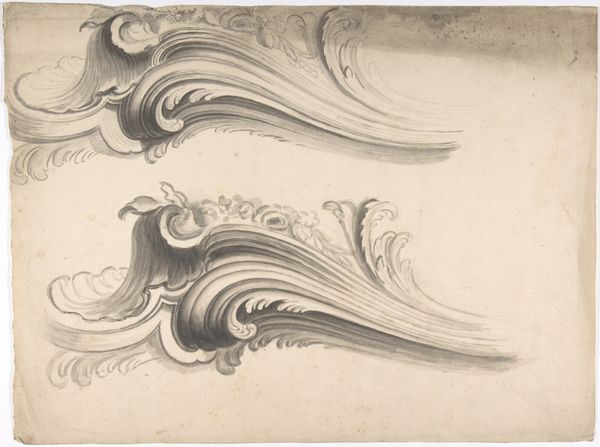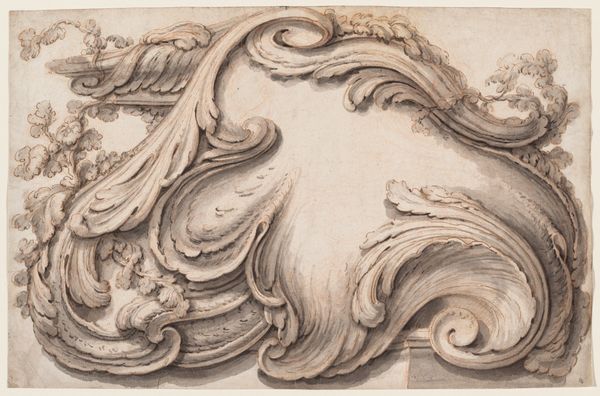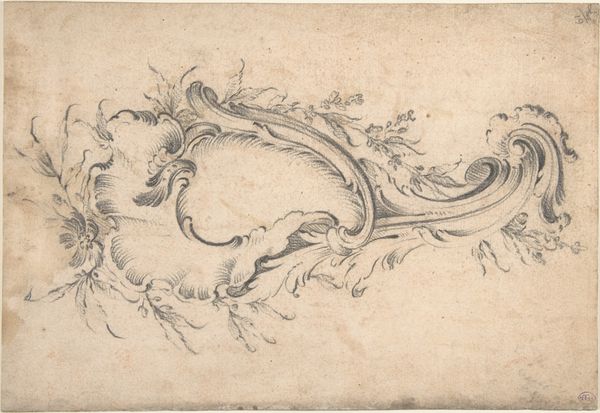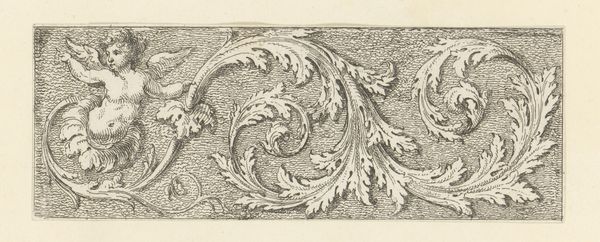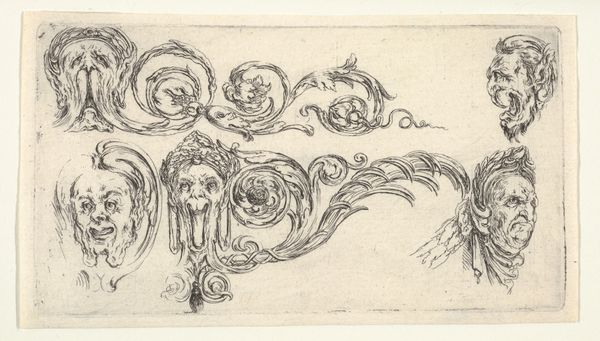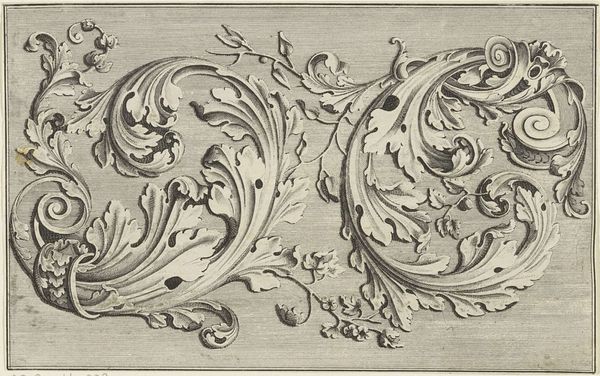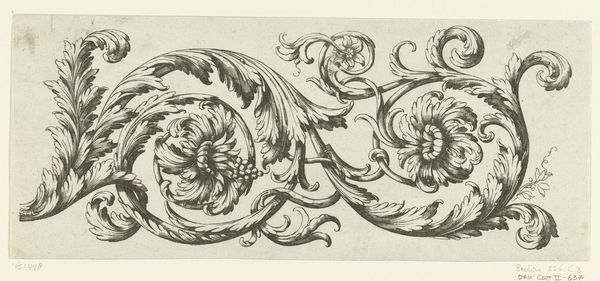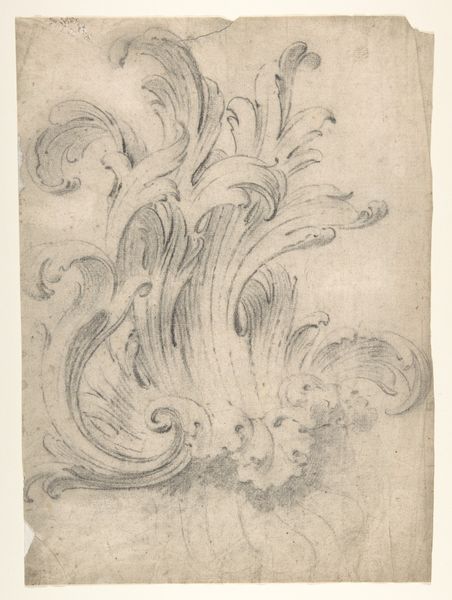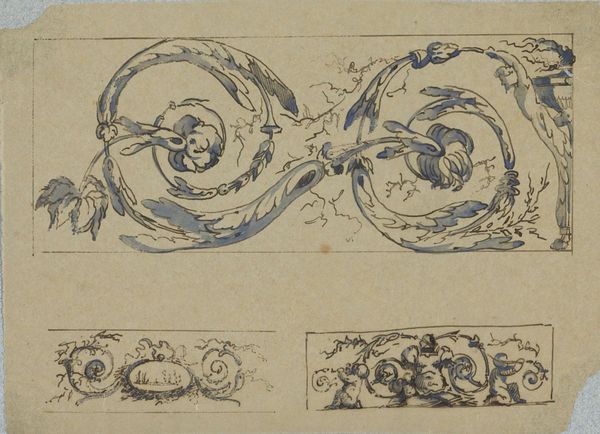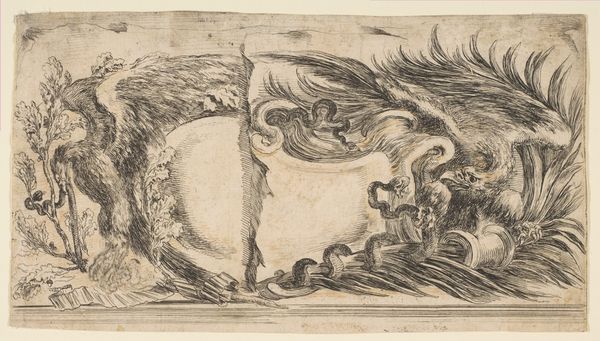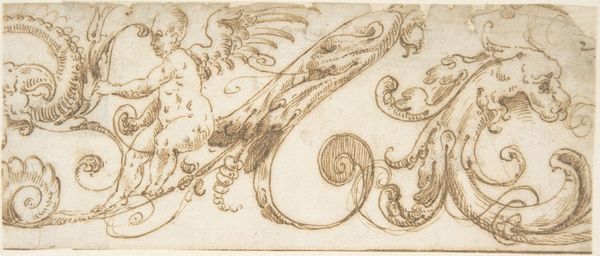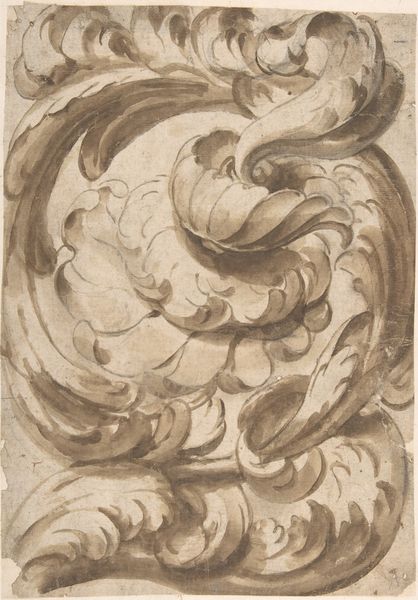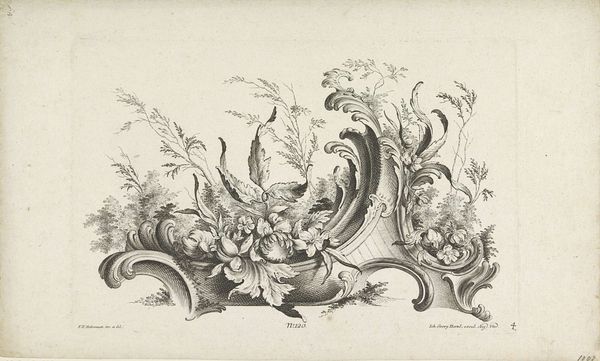
drawing, ornament, paper, pen
#
drawing
#
ornament
#
baroque
#
classical-realism
#
etching
#
paper
#
form
#
geometric
#
line
#
pen
#
decorative-art
Dimensions: sheet: 29.1 × 44.6 cm (11 7/16 × 17 9/16 in.) mount: 35 × 50.1 cm (13 3/4 × 19 3/4 in.)
Copyright: National Gallery of Art: CC0 1.0
Editor: We're looking at an Acanthus Ornament, a drawing from around 1760 by an anonymous artist, rendered in pen on paper. It strikes me as a celebration of classical forms, but with a very stylized, almost extravagant flourish. What layers do you see at play within this seemingly simple ornamental piece? Curator: This "simple" ornament speaks volumes about power, class, and the appropriation of nature for societal validation. Think about it: the acanthus leaf, borrowed from the Mediterranean landscape, meticulously rendered in a controlled, artificial medium. In whose homes, on whose buildings, would such ornamentations be found? And what does it tell us about their values? Editor: So, the aesthetic is inseparable from social context? Curator: Precisely. Baroque style was a powerful tool, signaling wealth and control. The curve, the flourish – these weren't just pretty designs; they visually communicated status, reflecting deeply entrenched social hierarchies. The 'natural' world, meticulously and idealistically curated through artistic license. Editor: That’s fascinating. It makes me think about who had access to artistic training, who decided which forms were desirable, and what that meant for other artistic expressions. Curator: Absolutely. Who decided that *this* depiction of nature, so removed from its messy reality, was the height of artistry? It's a commentary on the period's power structures and the ways in which art served to reinforce them. What might an artist from a less privileged background have chosen to draw? What kind of forms would they use to signal something valuable? Editor: It definitely gives me a lot to think about – to see past the surface and consider the socio-political roots of even decorative arts. Curator: And to consider what and who is left out of that carefully constructed picture. I am very glad to open up new views for you!
Comments
No comments
Be the first to comment and join the conversation on the ultimate creative platform.
